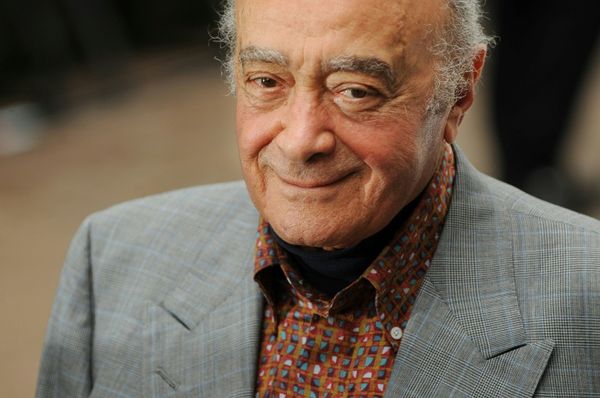
The man who detonated a bomb outside Liverpool Women’s Hospital had his asylum claim thrown out by a judge six years before the attack after he lied about being from Syria.
Emad al-Swealmeen, 32, arrived in the UK in April 2014 and claimed asylum weeks later, but was refused protection and told he could be deported to Iraq or Jordan because his claim was “not credible”.
He appealed the Home Office’s decision but a judge at the First-tier Tribunal dismissed the claim in April 2015.
The Home Office refused to answer questions on why it did not deport al-Swealmeen after the decision, and he later made a new asylum application under a different name.
This claim, the date of which has not been confirmed, was also refused. Another appeal was launched, however, which was still under consideration at the time he was killed by the homemade bomb on Remembrance Sunday.
A court judgment published following requests by the BBC, PA news agency and The Times confirmed that al-Swealmeen had been detained under the Mental Health Act in March 2015 and was diagnosed as suffering from depression, anxiety and post-traumatic stress disorder.
It came after he pleaded guilty to possession of a blade at Liverpool Magistrates’ Court. The Mersey Care NHS Foundation Trust said he was not receiving any mental health treatment at the time of the bombing.
His appeal hearing at the First-tier Tribunal proceeded in his absence on 13 April 2015 because he was in hospital, and a judge gave his ruling four days later.
The document said al-Swealmeen did not qualify for asylum or any other form of humanitarian protection, and had not established a “well-founded fear of persecution” or harm.
In an interview, he claimed he had flown to the UK on a false Jordanian passport, but the passport and entry visa were found to be genuine.
The passport recorded al-Swealmeen’s address as the United Arab Emirates (UAE), where he had been living for 14 years, and said his parents were Jordanian nationals.
It said he had been born in Iraq on 11 October 1989, and that his mother was also born in Baghdad.
An analysis of al-Swealmeen’s language indicated that there was a “high likelihood” he was of Iraqi origin, and it was “very unlikely he is Syrian”.
“I find that the appellant is not a Syrian citizen and does not have any connection with that country,” the judge said. “I further find that he was born in Iraq and holds a Jordanian passport.”
In asylum interviews, al-Swealmeen claimed he was Syrian but left the country to live with an aunt in the UAE in 1999, then returned to Syria to check on relatives in September 2013.
The court ruling said he was only able to describe the area where he claimed his family lived “in general terms” and did not know which faction held control during the ongoing civil war.
“He also struggled to describe the features of the area, such as the geographical layout,” the judge said.
“His account of his time in Syria gives the impression of someone quoting information that is in the public domain rather than having first-hand experience.
“Accepting that there are serious problems within Syria, the appellant did not identify himself with any particular faction or indicate that he would be at risk other than in a general sense.”
The judge said al-Swealmeen had “attempted to give an account to put himself in the best light”, but failed.
“I reject his account of events in Syria and his fears on his return in their entirety, and dismiss his asylum appeal,” said the judgement.

Al-Swealmeen’s appeal was dismissed on asylum and human rights grounds, opening the door for him to be returned to Iraq or Jordan, but he remained in the UK.
A December inquest into al-Swealmeen’s death noted that his original asylum claim and all subsequent claims and appeals were turned down.
Following revelations that al-Swealmeen had converted to Christianity in 2015, the coroner asked a police officer whether the move could have aimed to strengthen his asylum claim.
The officer said: “I'd agree with that because he would claim he'd be liable to persecution on return to Syria or Iraq.”
The inquest heard that a copy of the Quran and a prayer mat were found at al-Swealmeen’s home. Senior coroner Andre Rebello said: “It was evident he carried out the religious duties of someone who is a follower of Islam, notwithstanding the reported conversion to Christianity.“
The coroner found that al-Swealmeen planned the bombing “over many, many months”.
Police declared the incident, where the bomber killed only himself in an apparently early or faulty detonation inside a taxi, a terror attack but have not confirmed the motivation.
A Home Office spokesperson refused to comment on the judgment or answer questions on why al-Swealmeen had not been deported after losing the 2015 appeal.
“The New Plan for Immigration will require people to raise all protection-related issues upfront to tackle the practice of making multiple and sequential claims and enable the removal of those with no right to be in our country more quickly,” a statement added.







